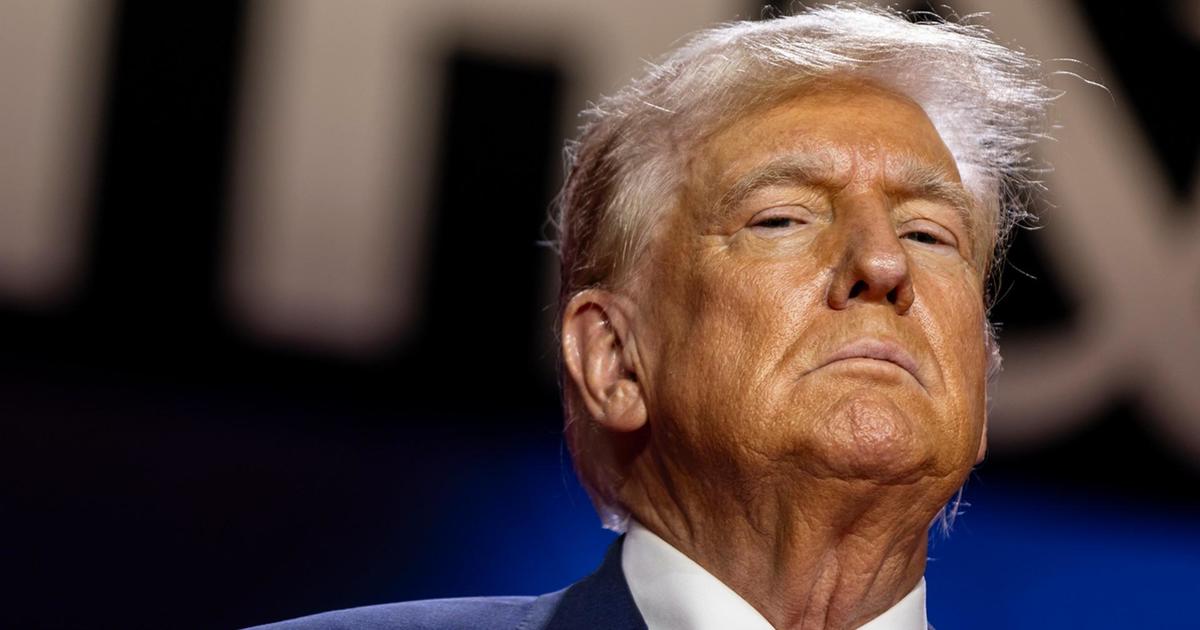Former President Donald Trump is campaigning on a pledge to end the “inflation nightmare,” vowing that if he wins a second term, he’ll bring down prices “very quickly.” And if that scenario came to pass, it would be cheered by the millions of Americans who say higher costs remain a major problem. There’s only one problem: Key policies that undergird so-called Trumponomics — a combination of tariffs, tax cuts and a crackdown on immigration — are likely to cause a flare-up in inflation, according to many Wall Street economists. That would be a painful outcome for consumers and businesses sapped by more than two years of surging prices.
Where will inflation go in 2025?
Under a Republican election sweep that helps Trump implement his economic agenda, the annual inflation rate would increase to 3.6% in 2025, Moody’s forecasted in its June analysis. By comparison, the most recent inflation data showed that prices rose 3% in June. If Biden wins and can continue with his platform, inflation could dip to 2.4% next year, Moody’s projected. To be sure, not everyone agrees with such projections. EJ Antoni, a research fellow and public finance economist at the conservative-leaning Heritage Foundation, told CBS MoneyWatch that some economists are making their conclusions “without looking at the broader picture.”
“As far as what [Trump] has said in public, it is to reduce federal income taxes and corporate taxes, and essentially replace that with tariffs,” Antoni said. “I understand the argument that tariffs are a tax on trade, but so is the income tax. If all these things are taxes on trade, do you want a tax on domestic trade or international trade?” Under this view, additional tax cuts will offset inflation caused by stiffer levies on foreign goods. Trump has floated a 10% across-the-board tariff on all U.S. imports, as well as a 60% tax on products from China.
Who pays tariffs?
The typical middle-class household in the U.S. would face an estimated $1,700 a year in additional costs if Trump enacts these proposed tariffs, according to the non-partisan Peterson Institute for International Economics. But economists note that low- and middle-income households would feel the impact much more than high-income families. That’s because lower income earners spend a large share of their money on goods and services, so tariffs have a disproportionate impact on them compared with wealthy families.
“The burden of it is very unequal,” Julia Coronado, founder of MacroPolicy Perspectives and a former Fed economist, told CBS MoneyWatch.
Immigration: Costs and benefits
A surge in immigration has expanded the U.S. labor force at a time when it’s facing demographic challenges, such as the aging baby boomer population. That’s helped buoy the labor market, which in turn has helped temper wage increases. But Republicans want to deport millions of immigrants, an action that could disrupt the economy and labor market, Coronado said. “Deporting people is going to be a hit to both demand and supply — you would deport people who are working and spending money in the economy, so growth will slow,” she said.
Antoni notes that immigrants drive up costs for both the federal government and at the local level, which would be eliminated if they were deported. Of course, Trump has yet to detail many of his economic plans, such as his policies for individual income taxes. For now, what is known about his platform suggests it could create conditions that boost inflation, rather than slow it as he has promised, economists said.
“Trump wants a combination of things that economists know don’t add up,” Coronado told CBS MoneyWatch. “He’s promising, ‘I can have my cake and eat it too’.”






